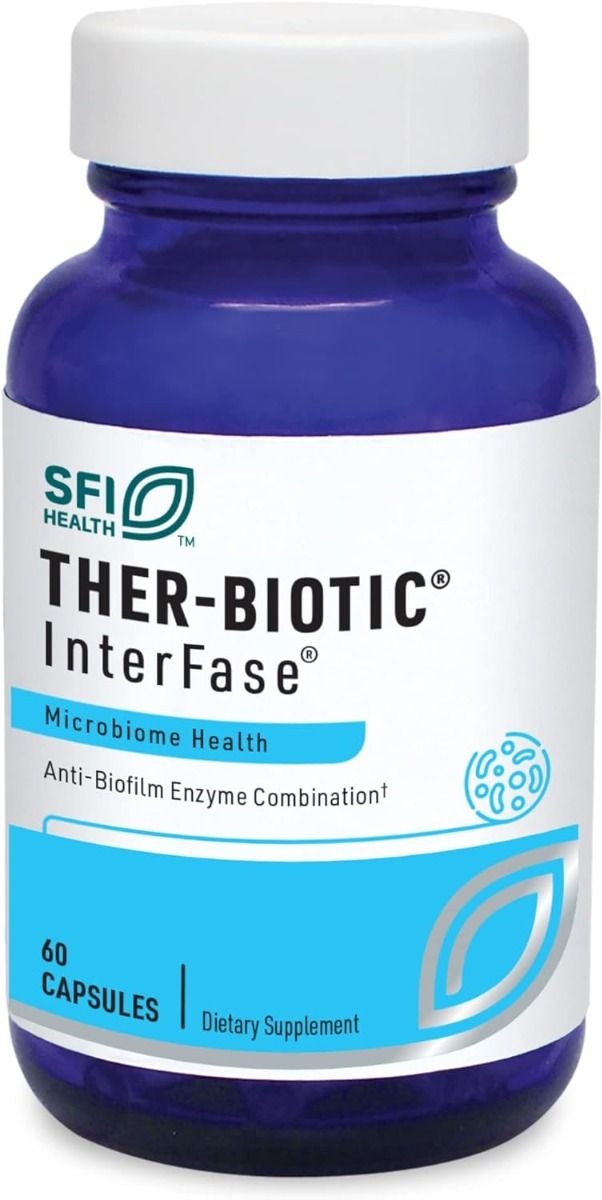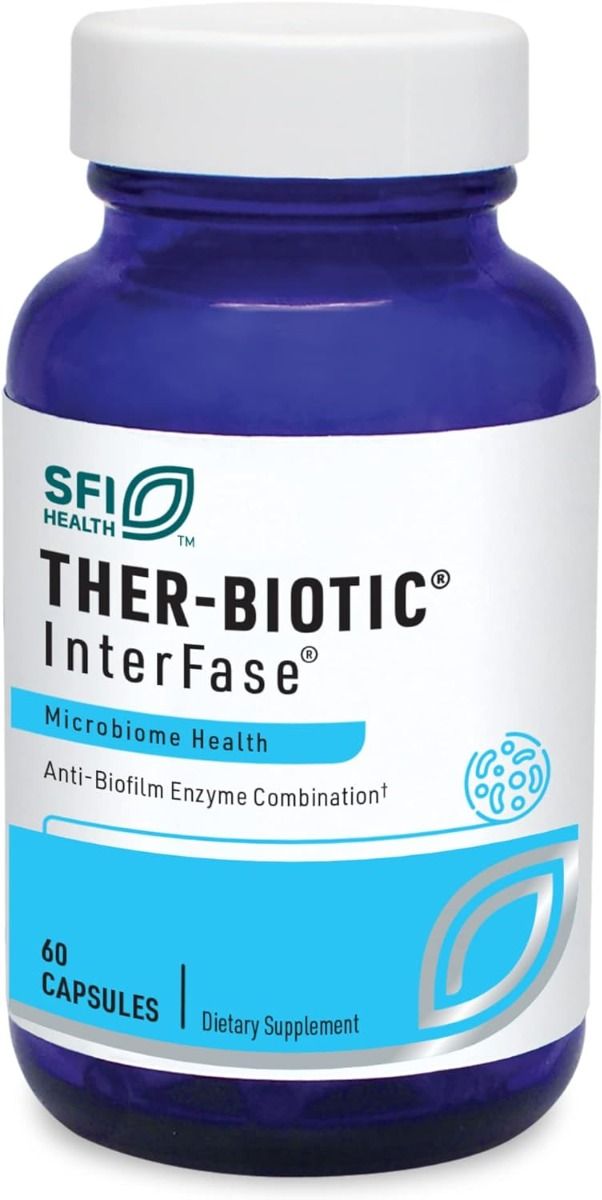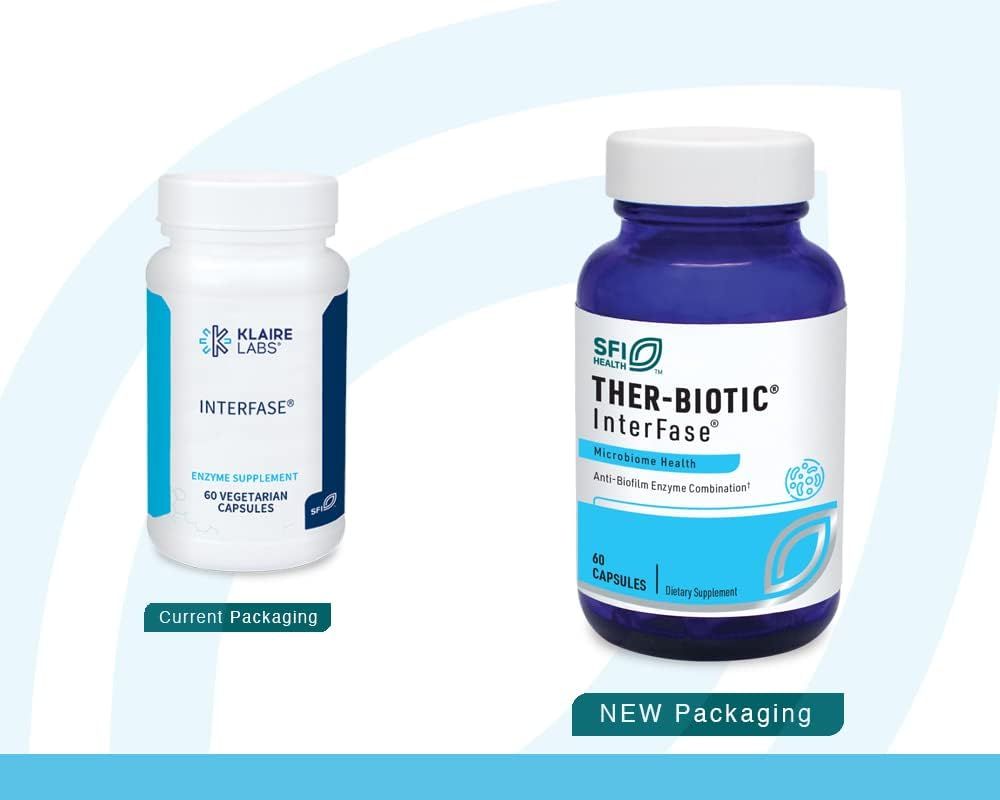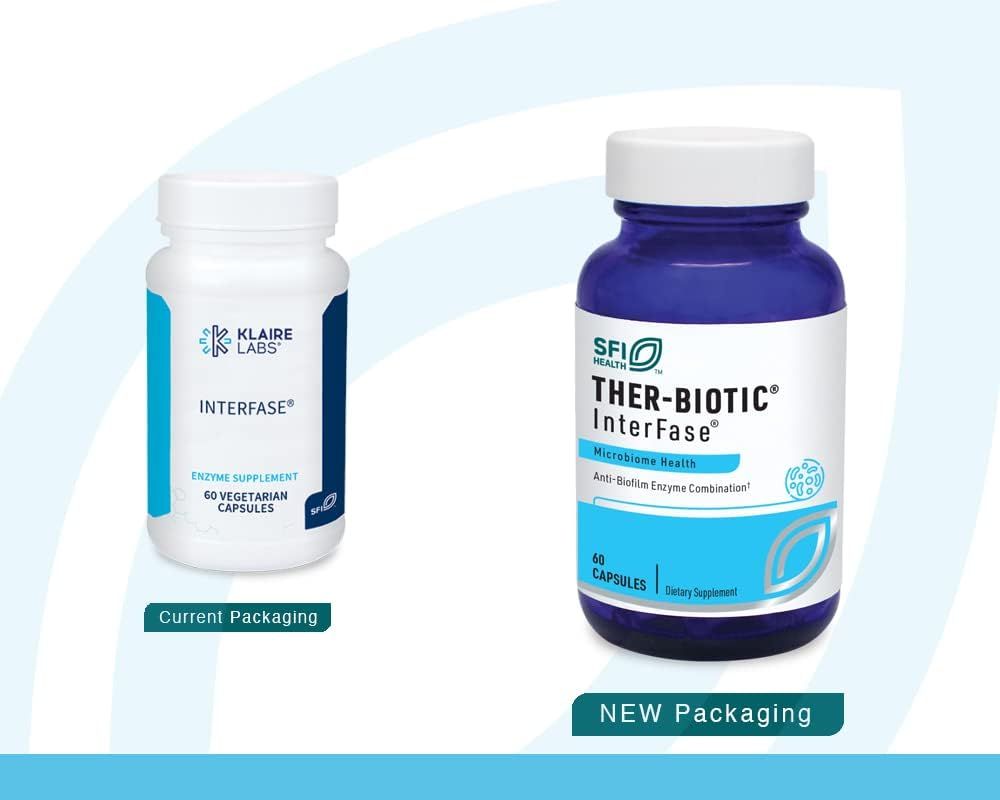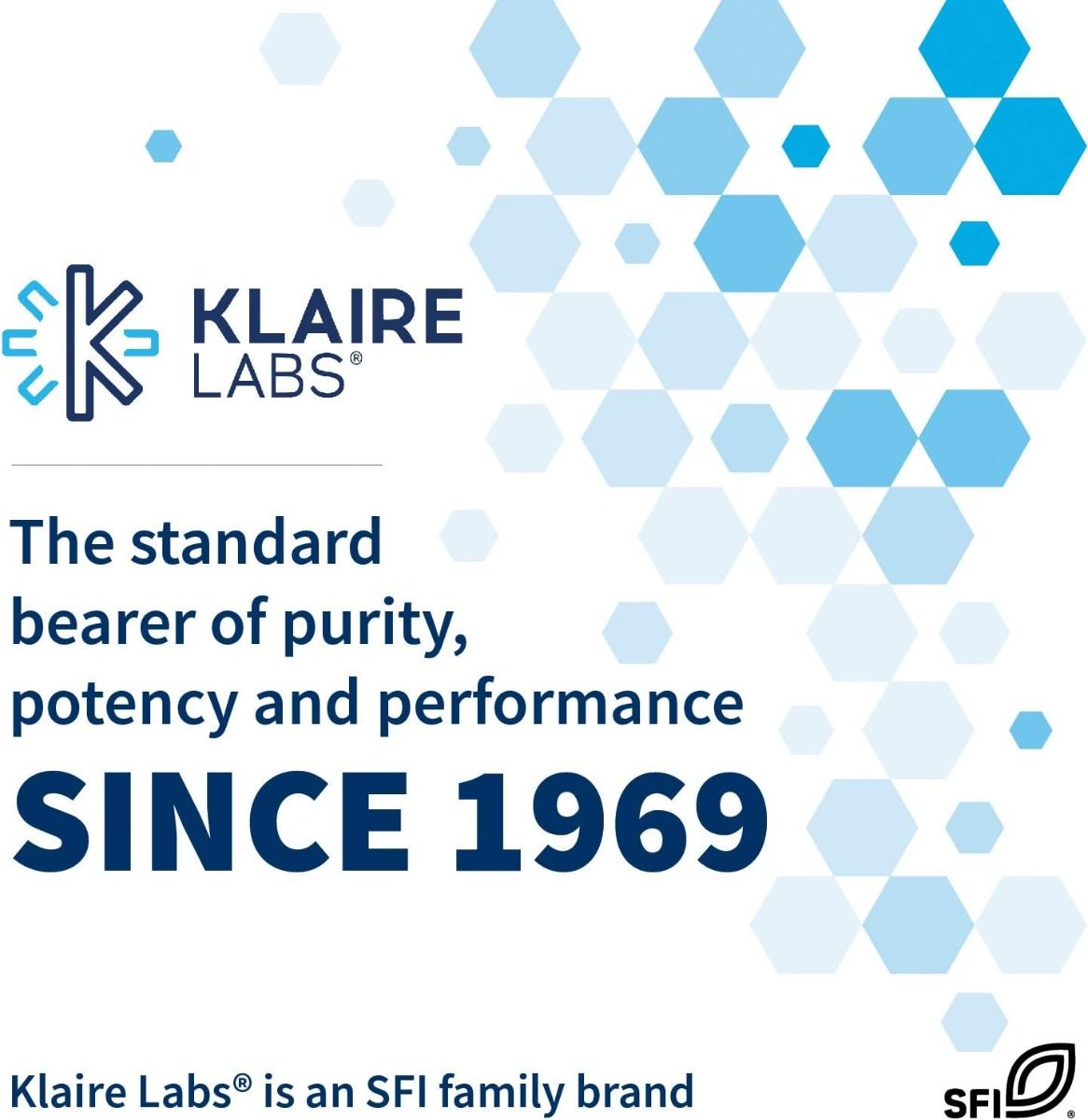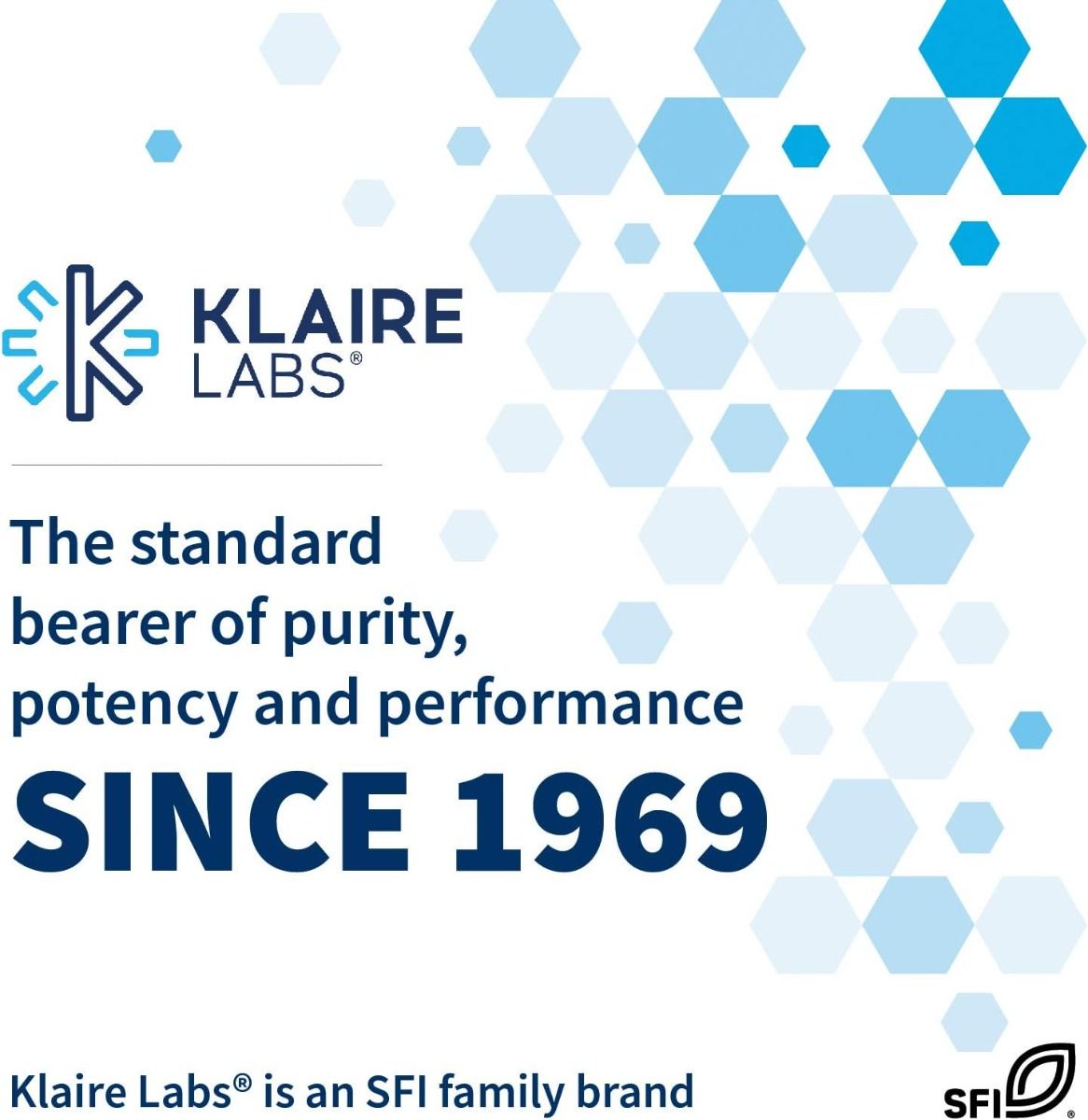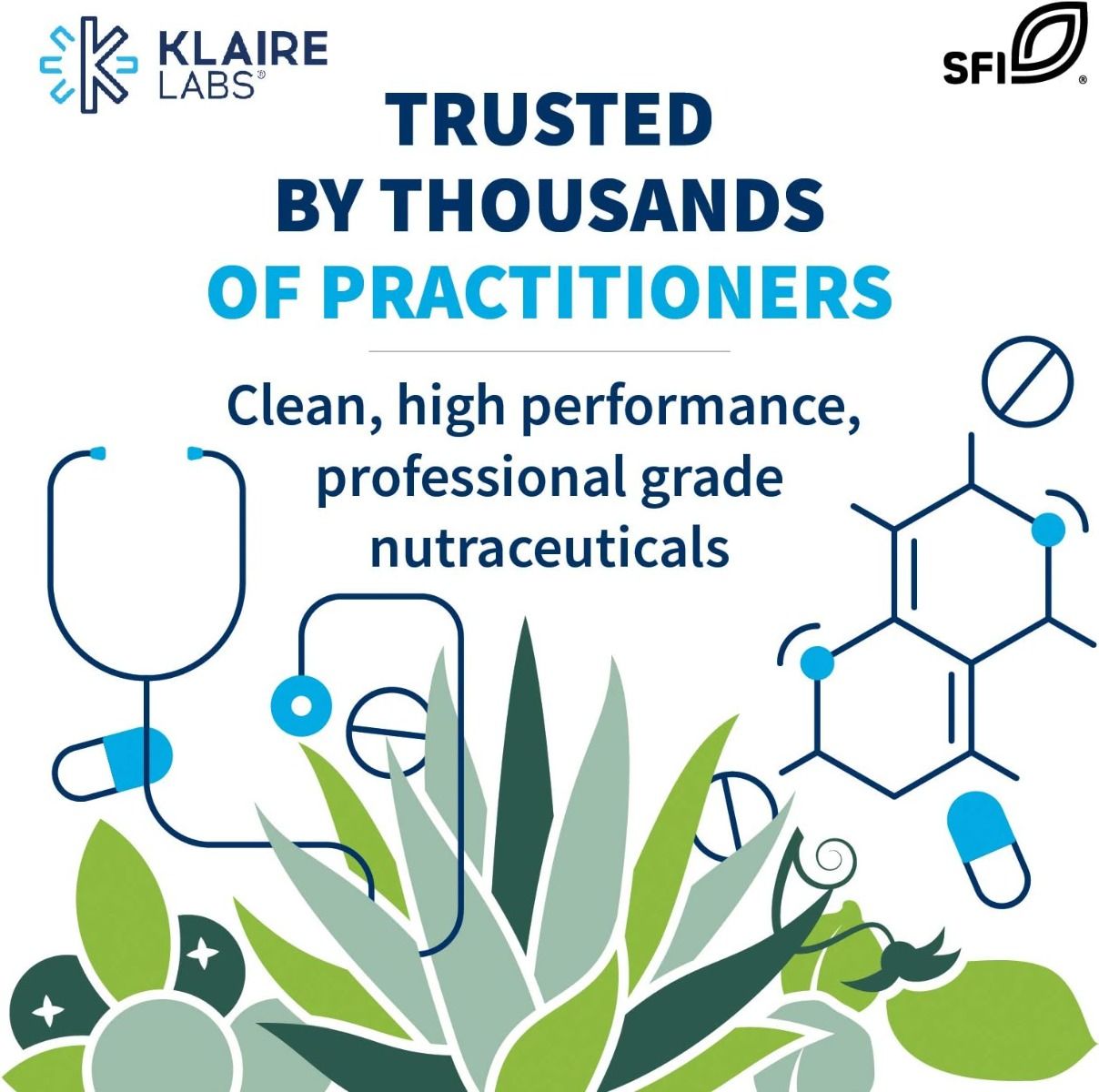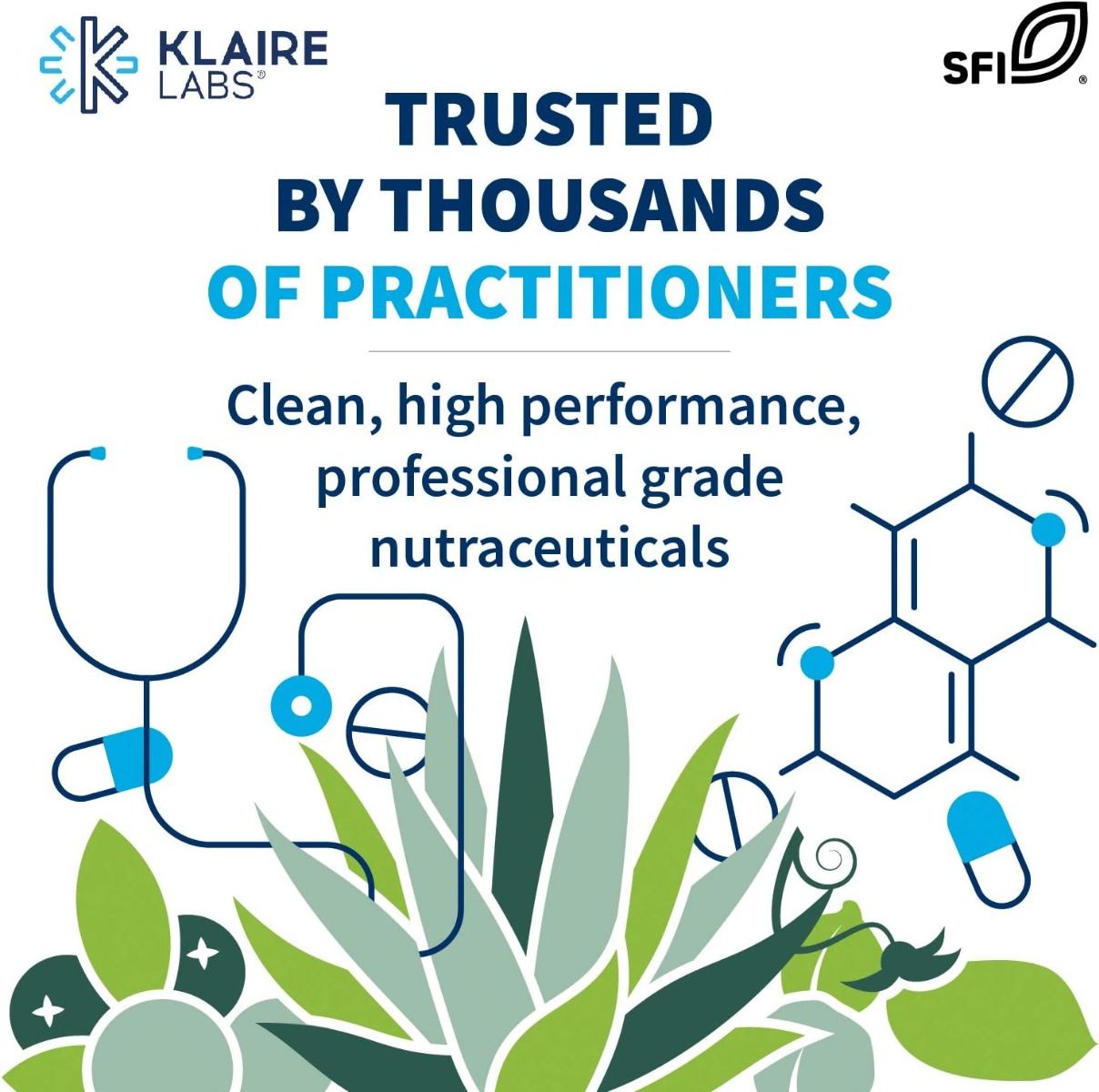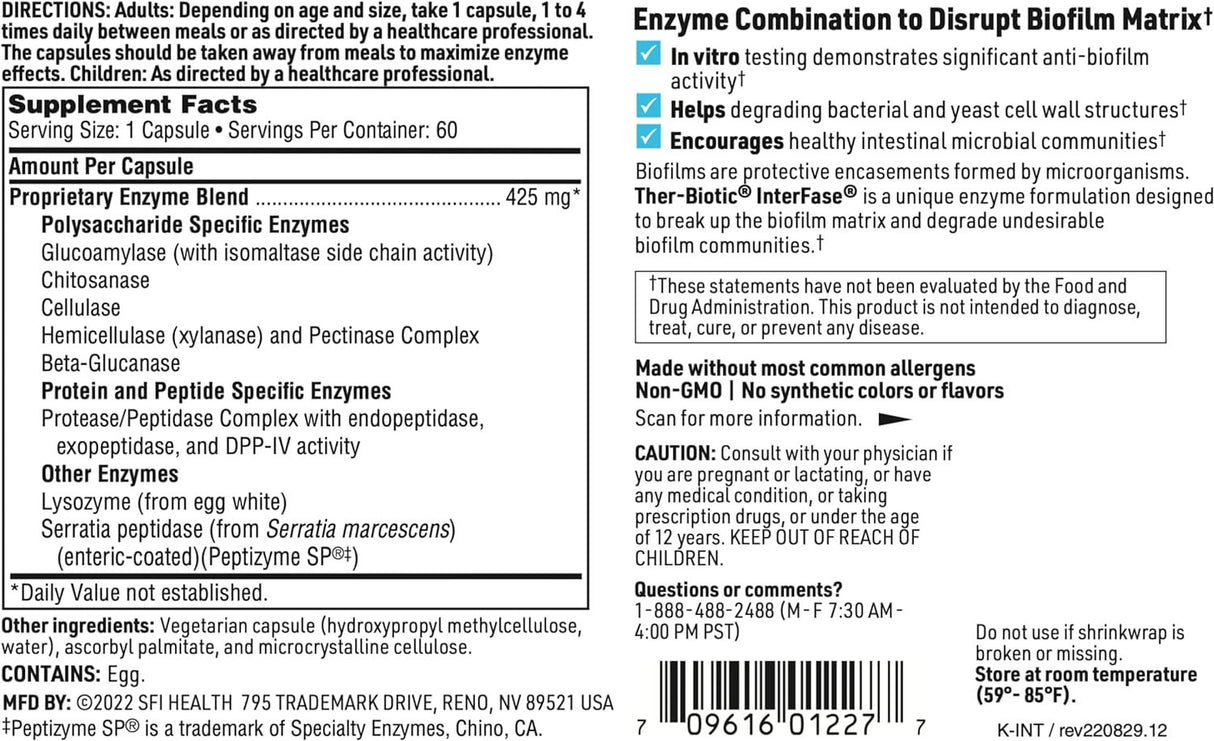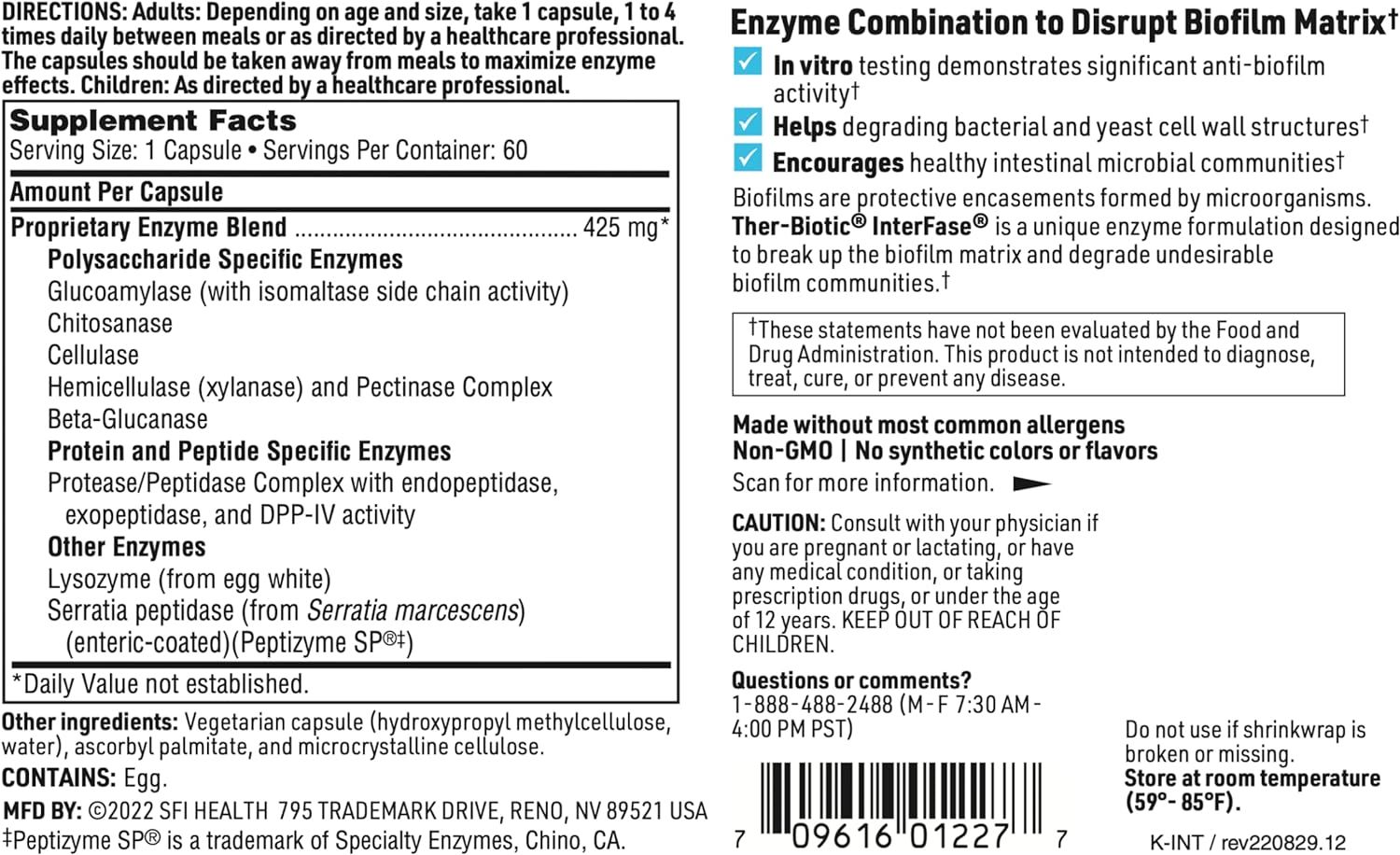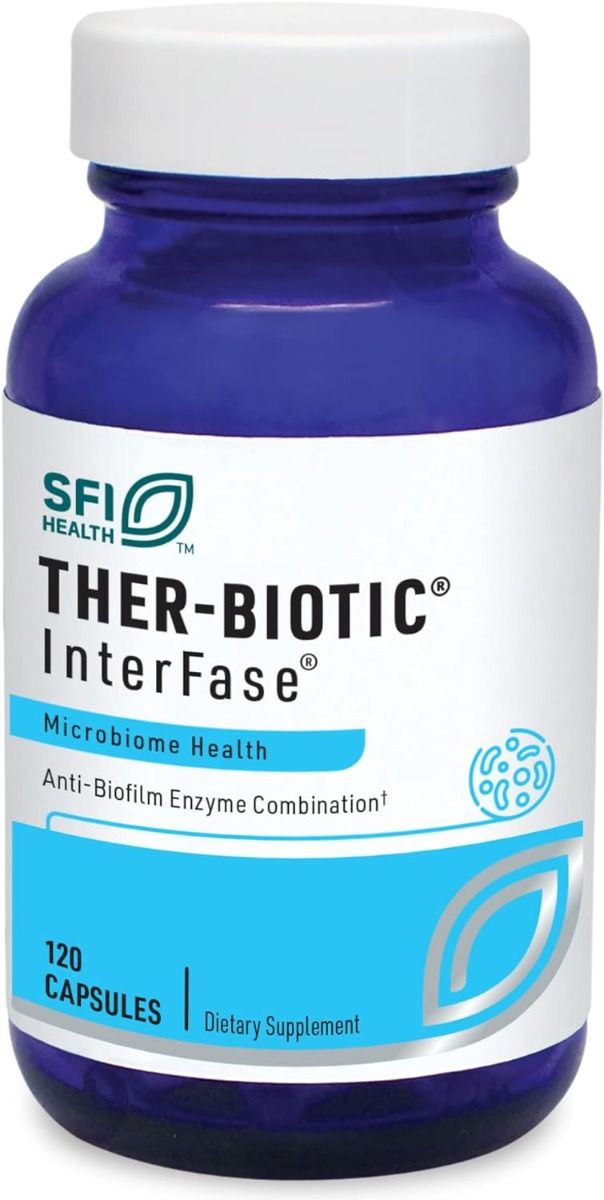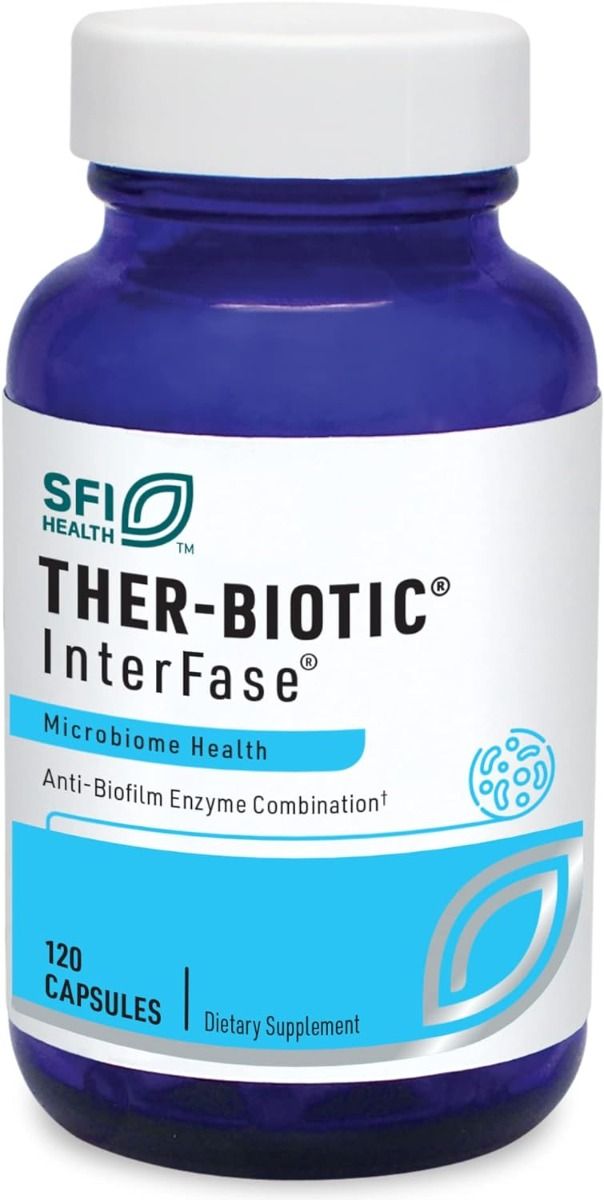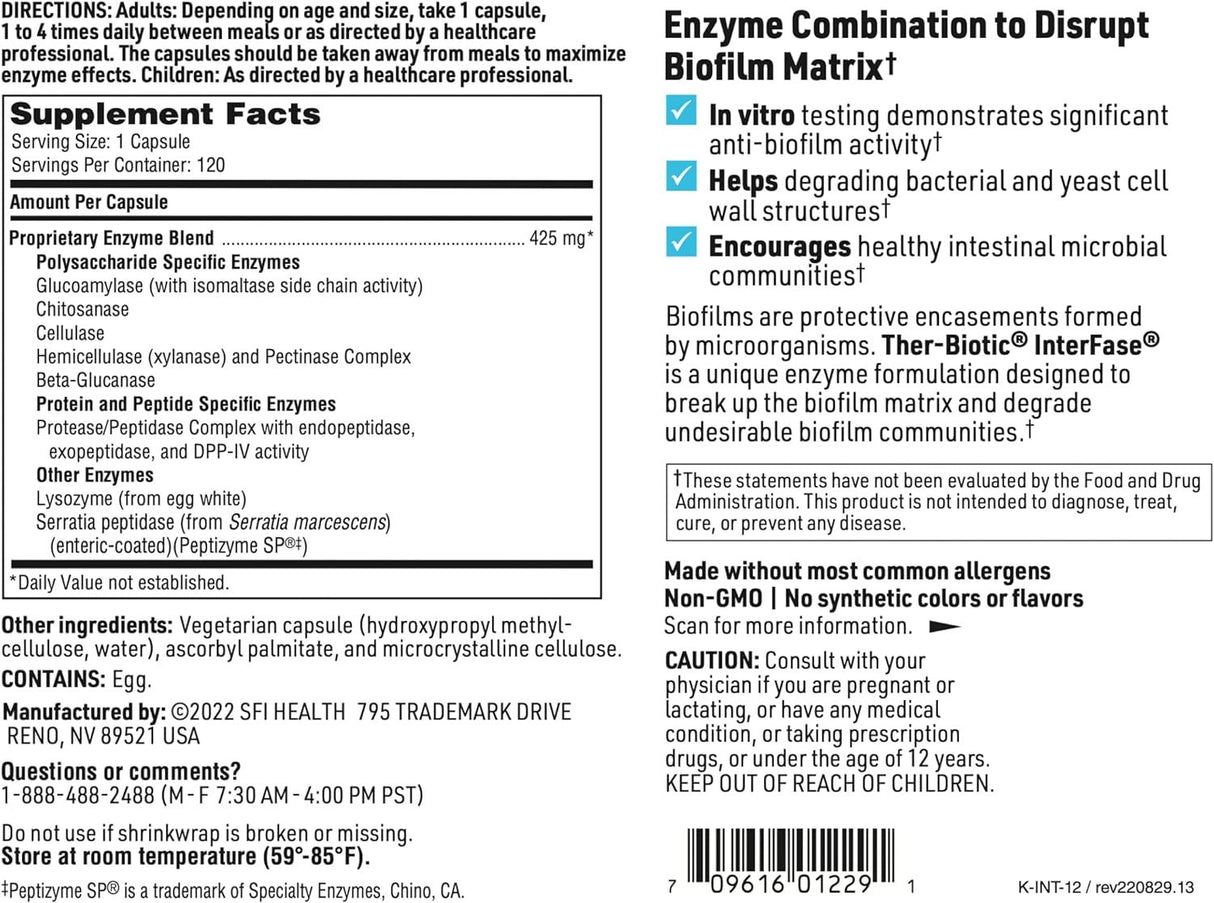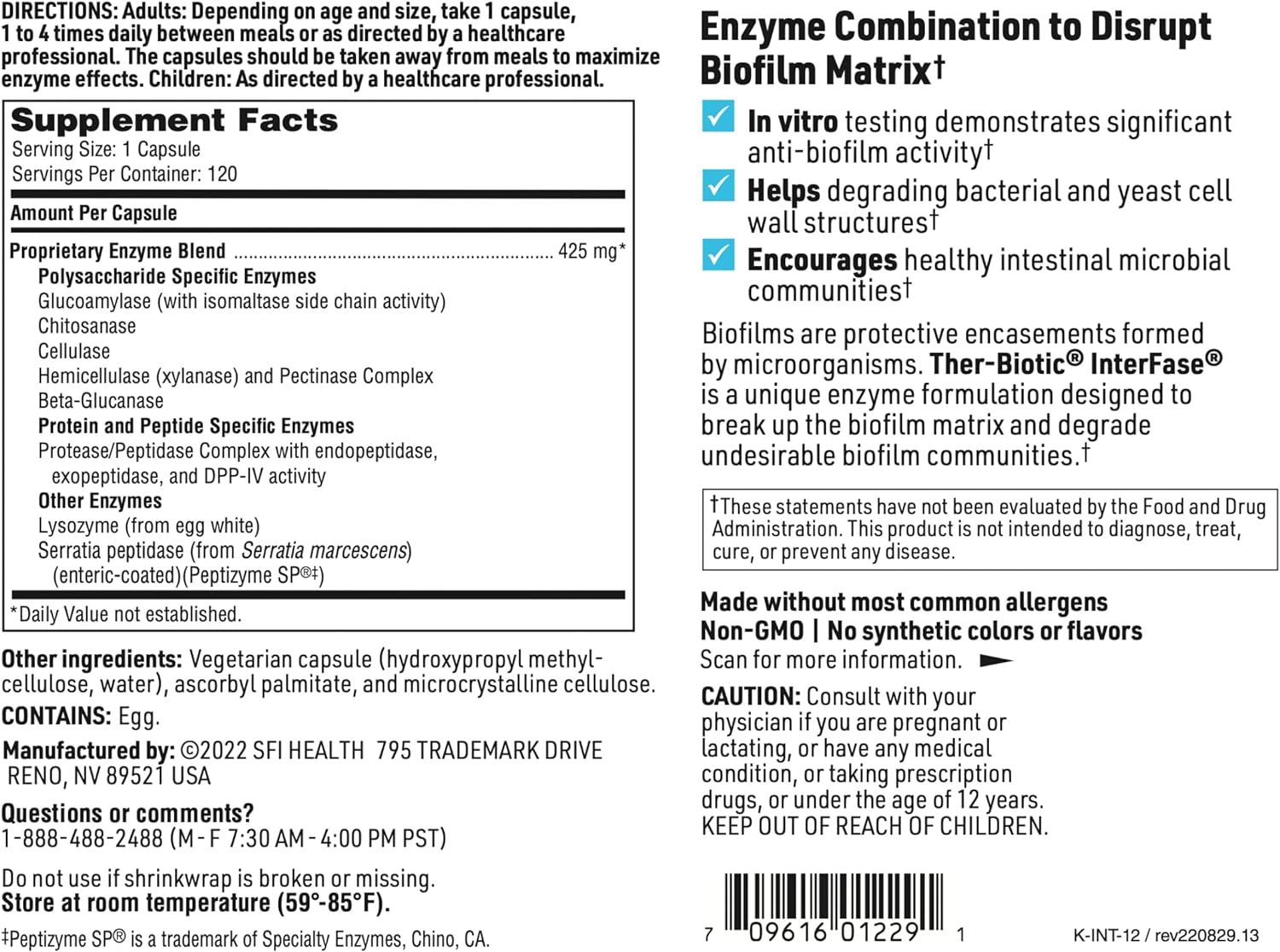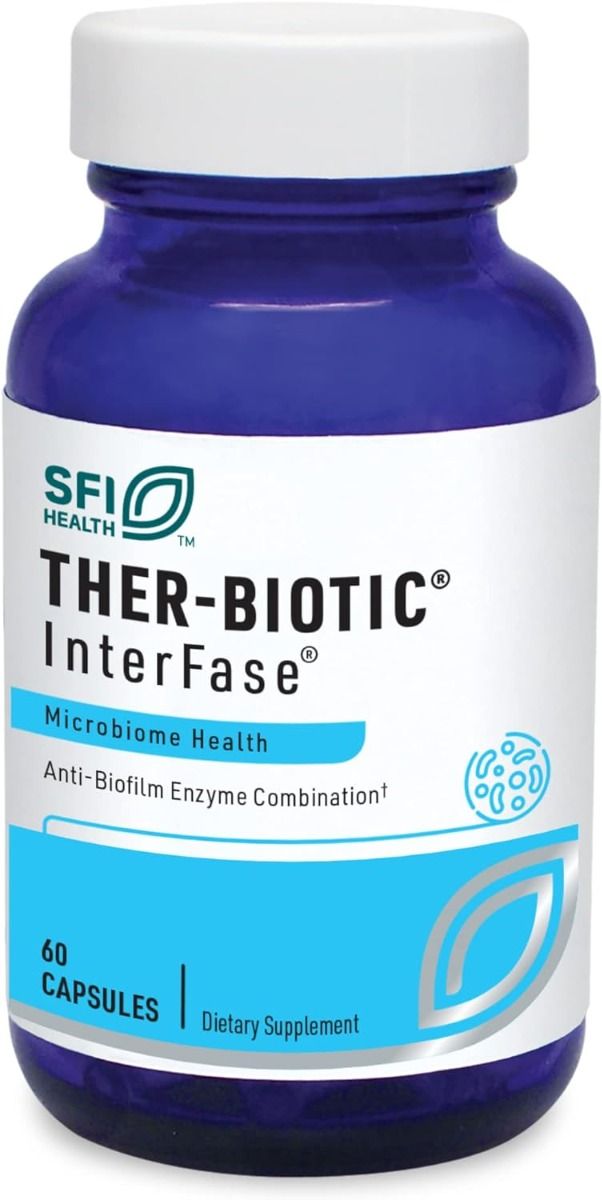Ther-Biotic InterFase Veggie Caps
Couldn't load pickup availability
Shipping & Return
Shipping & Return
Shipping
Shipping and handling charges are a flat rate of $4.95 for all Standard Shipping method orders and FREE for orders over $75 within the contiguous U.S. only, excluding Hawaii, Alaska & Puerto Rico.
30 Day Hassle Free Returns
If you’re not satisfied with our product, simply contact us and we’ll give you a full, 100% hassle-free refund.
Description
Description
Specialized enzymes disrupt biofilm matrix embedding potential gastrointestinal pathogens.
Biofilm consists of microorganisms encased within a self-produced matrix of exopolysaccharides and exoproteins that strongly adheres to interfaces and resists dislodgement. Microorganisms residing within biofilms are highly resistant to antimicrobials including antibiotics and bacteriocins produced by probiotics. InterFase® is a unique enzyme formulation especially designed to disrupt the biofilm matrix that embeds potential gastrointestinal pathogens. Enzymes in InterFase® are selected for their ability to lyse the extracellular polymers commonly found in biofilm as well as degrade bacterial and yeast cell wall structures. InterFase® was developed using in vitro testing of antibiofilm activity and was found to have significant antibiofilm activity resulting in meaningful degradation of biofilm communities of potentially pathogenic bacteria and yeast. InterFase® is intended for use in conjunction with efforts to support normal gastrointestinal function and microflora. As an adjunct to other efforts to eliminate potential pathogens, it is best combined with use of a high-potency, broad, multispecies probiotic formulation and a prebiotic to encourage the formation of healthy intestinal microbial biofilm communities. It may also be combined with antimicrobial agents. The capsules should be taken away from meals to maximize the enzyme effects.
InterFase®: Specialized Enzymes Disrupt Biofilm Matrix that Embeds Potential Gastrointestinal Pathogens.
Populations of microorganisms in the human gut are divided between free-living planktonic microbes and colonizing sessile biofilm organisms. Biofilm consists of microorganisms encased within a selfproduced matrix of exopolysaccharides and exoproteins that strongly adheres to interfaces and resists dislodgement. Microorganisms residing within biofilms are highly resistant to antimicrobials including antibiotics and bacteriocins produced by probiotics. The biofilm of healthful commensal microorganisms greatly contributes to intestinal barrier function and colonization resistance. Disrupted healthful biofilm permits colonization and biofilm formation by potential pathogens such as Klebsiella pneumoniae, Escherichia coli, and Candida albicans. Eradication of pathogen-associated biofilm is critical to successful elimination of these harmful organisms and restoration of healthful biofilm communities. InterFase® is a highly specialized enzyme formula that supports normal gastrointestinal function and microflora by assisting degradation of biofilm communities of potentially pathogenic bacteria and yeast.
Biofilm Protects Potential Pathogens from Predation.
Biofilm is the preferred form of life for the vast majority of microorganisms. Microbes residing within biofilms may consist of one or more species that communicate and collaborate with one another in a heterogeneous community. Biofilm formation appears to be initiated by contact with a surface. It is a survival mechanism that triggers downregulation of genes such as those mediating motility and growth as well as expression of genes regulating synthesis of exopolysaccharides and exoproteins. The presence of calcium, iron, and magnesium is essential for biofilm creation and serves to cross-link the anionic regions of polymers.
Life within a biofilm confers significant survival advantages to bacteria and yeasts. Biofilms strongly adhere to interfaces and resist dislodgement. Biofilm formation may be viewed as an adaptive mechanism that enables microbes to persist and reproduce in an advantageous microecological niche. They are protected from predation by phages and protozoa as well as from host immune responses. Biofilm-residing microorganisms are highly resistant to the spectrum of antimicrobials ranging from germicides and disinfectants to antibiotics and bacteriocins produced by probiotics. Sessile biofilm microorganisms are 100 to 1000 times more resistant to antibiotics compared to planktonic forms of the same strain. Antibiotic resistance of biofilm-associated organisms has been attributed to impaired antimicrobial penetration of the biofilm matrix, reduced microbial growth rates, biofilm-induced expression of resistance factors, and other biofilm-induced physiologic changes that decrease susceptibility to antibiotics.
Gastrointestinal Biofilm – The Healthful and the Pathogenic.
The human gut is home to approximately 100 trillion microorganisms consisting of unattached planktonic microbes residing in the lumen and sessile biofilm organisms colonizing the mucosa and luminal particulate matter. Among the more important species involved in gastrointestinal biofilm formation are Bacteroides, Bifidobacterium, and Fusobacterium. Fusobacterium species appear to play a key role in formation and maintenance of healthy biofilm by forming coaggregation and coadhesion bridges between early and late bacterial colonizers. However, Fusobacterium, an anaerobic genus, can contribute to pathogenic biofilms because it requires association with an aerobic species in certain environments and hence promotes Streptococcus mutans biofilm in dental plaque leading to caries and Helicobacter pylori biofilm on the gastric mucosa associated with gastric ulcers. Disrupted healthful biofilm permits colonization and biofilm formation by potential pathogens such as Klebsiella pneumoniae, Escherichia coli, and Candida albicans. Potential pathogens residing within biofilms rapidly express genes associated with antimicrobial resistance and are protected from both cellular and humoral immune responses. Successful eradication of pathogen-associated biofilm is critical to elimination of these harmful organisms.
Documented Antibiofilm Activities.
InterFase® was developed using in vitro testing of antibiofilm activity. The MBEC™ P&G assay for antibiofilm activity was developed by the Biofilm Research Group at the University of Calgary which is staffed by some of the world’s leading authorities on biofilm microbiology. The MBEC™ device consists of multiple wells and pegs on which biofilm can be reproducibly formed and the impact of new compounds or formulations may be assessed. Antibiofilm activity is assessed by minimum biofilm eradication concentration (MBEC™) values which are determined by reductions in turbidity measured by optical density at 630 nm. InterFase® and InterFase Plus® were found to have significant antibiofilm activity resulting in meaningful degradation of biofilm communities of the potentially pathogenic bacteria and yeast listed below. InterFase® and InterFase Plus® have no adverse effects on healthful biofilm formed by Bifidobacterium bifidum PT131, Bifidobacterium breve PT132, Bifidobacterium longum PT136, Lactobacillus casei PT116, Lactobacillus rhamnosus PT112, and Lactobacillus salivarius ATCC 29602.
Biofilm Reduction Activity of InterFase® has been documented for:
Organism
Escherichia coli O157:H7
Staphylococcus aureus ATCC 29213
Gardnerella vaginalis ATCC 14018
Staphylococcus aureus MRSA 399
Helicobacter pylori ATCC 43504
Streptococcus pneumoniae ATCC 10015
Klebsiella pneumoniae ATCC 4352
Streptococcus pyogenes ATCC 10096
Pseudomonas aeruginosa ATCC 27853
Candida albicans SJ2083133
Clostridium difficile ATCC 9689
Candida paratropicalis ATCC 99916
InterFase® was found to have significant antibiofilm activity resulting in meaningful degradation of biofilm communities of potentially pathogenic Gram negative and Gram positive bacteria and yeast.
InterFase Plus® - Added Benefits from EDTA.
The presence of calcium, iron, and magnesium is essential for biofilm creation and serves to cross-link the anionic regions of polymers. InterFase Plus® includes ethylenediaminetetraacetic acid (EDTA), which binds the metals needed for biofilm formation and integrity. Adjunctive Support for Management of Potential Pathogens.
InterFase® and InterFase Plus® are intended for use in conjunction with efforts to support normal gastrointestinal function and microflora. As adjuncts to other efforts to eliminate potential pathogens, they are best combined with use of a high-potency, broad, multispecies probiotic formulation and a prebiotic to encourage the formation of healthy intestinal microbial biofilm communities. They may also be combined with antimicrobial agents. The suggested daily amount is 1-4 capsules of InterFase® or 2-8 capsules of InterFase Plus® depending on age and size. The capsules should be taken away from meals to maximize the enzyme effects.
Adjunctive Support for Management of Potential Pathogens.
InterFase® and InterFase Plus® are intended for use in conjunction with efforts to support normal gastrointestinal function and microflora. As adjuncts to other efforts to eliminate potential pathogens, they are best combined with use of a high-potency, broad, multispecies probiotic formulation and a prebiotic to encourage the formation of healthy intestinal microbial biofilm communities. They may also be combined with antimicrobial agents. The suggested daily amount is 1-4 capsules of InterFase® or 2-8 capsules of InterFase Plus® depending on age and size. The capsules should be taken away from meals to maximize the enzyme effects.

